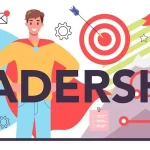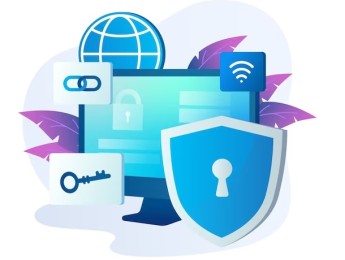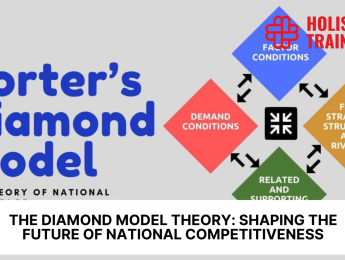- Table of Contents
- Introduction
- Decoding Success: What Does Professional Development Really Entail?
- Leadership Evolution: From Manager to Leader
- Leading or Managing: What's Your Approach?
- The Art of Leadership: Sculpting Your Managerial Identity
- Lifelong Learning: Cornerstone of Managerial Brilliance
- Why Does Lifelong Learning Matters?
- Crafting Your Learning Ecosystem
- Soft Skills: The Unseen Pillars of Managerial Success
- Why Are Soft Skills Game-Changers?
- Mastering Communication
- Strategic Thinking
- Time Management in Managerial Success
- Team Dynamics: How to Foster Cohesion and Productivity?
- Strategies for Effective Team Dynamics
- Conflict to Collaboration
- Conclusion
Introduction
In the dynamic world of management, the pursuit of success is an ongoing journey, not a static destination. This journey involves continuous exploration of capabilities, a commitment to improvement, and mastering the intricate art of leadership. Success in management is a holistic endeavor, requiring a nuanced approach that integrates personal and professional growth. This guide seeks to unravel the layers of managerial success, exploring professional development, leadership evolution, the significance of lifelong learning, soft skills mastery, and effective time management. Tailored for seasoned managers and aspiring professionals alike, this comprehensive resource serves as a roadmap to refine managerial and leadership skills. Join us on this dynamic journey, where success is not a one-size-fits-all concept, but a personalized and continuous pursuit of excellence.
Decoding Success: What Does Professional Development Really Entail?
The journey to success in management begins with a deep understanding of professional development. It's more than acquiring technical skills or climbing the corporate ladder; it's a holistic approach to growth that encompasses personal and professional dimensions. Successful managers recognize the importance of continuous improvement and actively seek opportunities to enhance their knowledge, skills, and leadership abilities. This section explores the various facets of professional development, guiding managers through the maze of choices and empowering them to craft a strategic path toward success.
Leadership Evolution: From Manager to Leader
Leading or Managing: What's Your Approach?
The distinction between being a manager and a leader is more than a matter of semantics—it's a fundamental shift in mindset and approach. Successful managers understand that true leadership goes beyond overseeing tasks; it involves inspiring and empowering others to achieve their full potential. This section explores the evolutionary path from manager to leader, highlighting the key attributes that define effective leadership. By embracing this transformation, managers can elevate their impact and foster a culture of excellence within their teams.
The Art of Leadership: Sculpting Your Managerial Identity
Leadership is not a one-size-fits-all concept; it's an art that allows individuals to sculpt their own managerial identity. Successful leaders develop a unique leadership style that aligns with their values, vision, and organizational culture. This section encourages managers to reflect on their leadership philosophy, providing actionable steps to craft a distinctive managerial identity. By understanding and embracing their leadership style, managers can authentically connect with their teams and navigate the complexities of leadership with confidence.
Lifelong Learning: Cornerstone of Managerial Brilliance
Why Does Lifelong Learning Matters?
In the fast-paced landscape of management, change is the only constant. Lifelong learning emerges as the cornerstone of brilliance, enabling managers to adapt to evolving challenges and seize new opportunities. This section explores the significance of lifelong learning, emphasizing its role in fostering adaptability and resilience. From staying abreast of industry trends to embracing emerging technologies, successful managers prioritize continuous learning as a strategic imperative.
Crafting Your Learning Ecosystem
While formal education provides a foundational understanding, the real magic happens when managers craft their personal learning ecosystem. This section offers practical insights into building a dynamic and personalized approach to learning. From networking with industry experts to leveraging online resources and attending relevant conferences, successful managers proactively shape their learning journey. By curating a diverse range of learning experiences, managers can stay agile in an ever-changing business landscape.
Table 1: Strategies for Crafting a Dynamic Learning Ecosystem
component | Description |
Formal Education | Foundation for understanding, but not the sole source. |
Personal Learning Ecosystem | Real magic happens when managers craft their personalized learning approach. |
Networking | Interaction with industry experts for insights. |
Online Resources | Utilizing digital platforms for diverse learning experiences. |
Attending Conferences | Participation in relevant conferences for networking and knowledge enrichment. |
Proactive Approach | Successful managers actively shape their learning journey. |
Diverse Learning Experiences | Curating various experiences to stay agile in the ever-changing business landscape. |
Soft Skills: The Unseen Pillars of Managerial Success
Why Are Soft Skills Game-Changers?
While technical skills are crucial, soft skills are the unseen pillars that uphold managerial success. Effective communication, emotional intelligence, and adaptability are just a few examples of these game-changing attributes. This section sheds light on the significance of soft skills , offering practical insights into honing these abilities. Successful managers understand that building positive relationships, navigating conflicts, and fostering collaboration require a mastery of soft skills.
Mastering Communication
At the heart of soft skills lies communication mastery—a skill that transcends verbal exchanges. This section explores the art of communication in managerial success, emphasizing its role in bridging gaps and fostering collaboration. Whether communicating with team members, stakeholders, or superiors, successful managers employ effective communication strategies to convey their vision, build trust, and align teams towards common goals.
- Strategic Vision Articulation: At its core, effective communication allows managers to articulate a strategic vision with precision. Adept communicators tailor their messages to resonate with diverse audiences, ensuring a comprehensive understanding of organizational goals. The nuance lies not just in conveying information but in strategically presenting a vision that inspires and motivates.
- Trust-Building Foundation: Beyond the exchange of information, communication serves as the bedrock for trust-building within teams. Successful managers navigate the intricacies of communication to foster trust among team members. This involves creating an environment of openness, where transparent communication becomes the norm, cultivating collaboration and a sense of shared purpose.
- Alignment of Collective Efforts: The orchestration of collective efforts toward shared objectives relies on effective communication. Managers, well-versed in strategic communication, synchronize team members, engage stakeholders, and present compelling insights to superiors. It's the conduit through which individual efforts harmonize into a cohesive, goal-oriented symphony.
- Non-Verbal Proficiency:
- Mastery of communication extends beyond verbal prowess, encompassing non-verbal cues, tone modulation, and impeccable timing. This segment delves into the subtleties of non-verbal communication, offering insights into how managers can leverage these aspects to connect with and inspire their teams effectively.
- Continuous Learning Journey:
- The journey toward mastering communication is not a static acquisition of skills; rather, it's a dynamic evolution. Managers committed to effective communication embark on a continuous learning trajectory. Through the deliberate application of communication strategies, they elevate their leadership impact, contributing to a workplace culture characterized by transparent collaboration and shared growth.
- Impact on Organizational Culture:
- Communication, as a core managerial skill, significantly shapes organizational culture. Successful managers, prioritizing communication mastery, play a transformative role in creating a cohesive, achievement-oriented workplace. Here, ideas flow freely, collaboration thrives, and common goals are embraced, fostering an environment where effective communication becomes the heartbeat of achievement.
In essence, mastering communication is an ongoing, multifaceted evolution. It's not merely a skill to be acquired but a commitment to refining strategies, ensuring that communication remains a dynamic force propelling managers towards sustained success, leadership excellence, and the creation of a workplace where effective communication is synonymous with organizational achievement.
Strategic Thinking
In the ever-evolving landscape of leadership and management, the ability to think strategically emerges as a beacon guiding organizations towards enduring success. Beyond routine decision-making, strategic thinking involves a holistic approach that anticipates challenges, envisions future scenarios, and formulates comprehensive plans. It's not just a skill; it's a mindset that propels leaders to navigate complexities and position their teams for sustainable growth.
- Foresight for Future Success:
Leaders adept in strategic thinking possess the foresight to analyze industry trends, foresee shifts in the business environment, and make informed decisions that align with overarching organizational goals. This capability allows them to not only manage the present effectively but also strategically shape a successful future.
- Cultivating Innovation:
Strategic thinkers play a pivotal role in fostering a culture of innovation within their teams. By encouraging the exploration of new ideas and solutions, they create an environment that thrives on adaptability and forward-thinking. This not only enhances the organization's capacity to navigate uncertainties but also positions it as a dynamic player in an ever-evolving market.
- Adaptability in Dynamic Circumstances:
The significance of strategic thinking becomes particularly evident in times of change. Leaders with this skillset can adjust their strategies in response to dynamic circumstances, ensuring that their organizations remain agile and responsive. It's a skill that goes beyond managing the status quo; it's about proactively shaping a successful and sustainable future.
In essence, strategic thinking is the linchpin that propels leaders to navigate the complexities of the modern business world with confidence. It's a journey towards not just managing the present but also strategically paving the way for a future where success is not just achieved but continually redefined.
Time Management in Managerial Success
Cracking the Time Code
Time is a finite resource, and successful managers recognize its strategic value. This section delves into the intricacies of time management, offering a comprehensive guide to cracking the code of productivity. From prioritizing tasks to mastering delegation, managers learn how to make the most of their time and energy. By adopting efficient time management practices, managers can enhance their effectiveness and focus on activities that truly contribute to their success.
Time as a Strategic Asset
Beyond mere efficiency, successful managers view time as a strategic asset. This section explores how managers can leverage their time to achieve long-term objectives and contribute to organizational success. From setting strategic priorities to balancing short-term demands with long-term goals, successful managers develop a holistic approach to time management. By making every moment count, they create a lasting impact on their teams and the overall success of the organization.
Team Dynamics: How to Foster Cohesion and Productivity?
Strategies for Effective Team Dynamics
A manager is only as successful as their team, and effective team dynamics are the foundation of managerial success. Navigating the complex terrain of team dynamics requires a nuanced approach and strategic implementation of effective practices. Successful managers understand that building and maintaining a cohesive and productive team is essential for organizational success. Here are key strategies to foster effective team dynamics:
- Foster a Positive Team Culture: Cultivate an environment where positivity, collaboration, and mutual respect thrive. Encourage open communication and celebrate team achievements to strengthen the team's sense of identity and purpose.
- Recognize and Leverage Individual Strengths: Acknowledge the unique strengths and contributions of each team member. Understanding individual strengths allows for strategic task allocation, fostering a sense of value and empowerment within the team.
- Promote Effective Communication: Establish clear communication channels and expectations within the team. Encourage open dialogue, active listening, and the free exchange of ideas. Effective communication minimizes misunderstandings and promotes a culture of transparency.
- Set Clear Goals and Expectations: Clearly define team goals, objectives, and individual responsibilities. Setting expectations provides a roadmap for the team, ensuring alignment and focus on shared objectives.
- Encourage Collaboration and Interdependence: Foster a collaborative mindset by emphasizing the importance of interdependence. Encourage team members to leverage each other's strengths, share expertise, and collaborate on tasks to achieve collective success.
- Provide Ongoing Feedback: Establish a feedback loop to facilitate continuous improvement. Regularly provide constructive feedback to team members, recognizing achievements and addressing areas for growth. This promotes a culture of learning and development.
- Address and Resolve Conflicts Promptly: Conflicts are inevitable in any team, but successful managers address issues promptly and constructively. Implement conflict resolution strategies, encourage open discussions, and ensure conflicts are resolved in a manner that strengthens team relationships.
- Cultivate a Sense of Belonging: Nurture a sense of belonging and inclusivity within the team. Recognize the diverse backgrounds and perspectives of team members, creating an environment where everyone feels valued and motivated to contribute.
- Promote Flexibility and Adaptability: Encourage flexibility and adaptability within the team to respond effectively to changing circumstances. A team that can adapt to challenges collaboratively is better positioned for success.
- Lead by Example: Leadership plays a crucial role in effective team dynamics. Lead by example, demonstrating the values and behaviors you expect from the team. Model strong communication, collaboration, and a commitment to excellence.
By incorporating these strategies into team management practices, managers can create an environment where individuals thrive, collaboration flourishes, and the team collectively achieves its goals. Effective team dynamics lay the foundation for sustained success and contribute to a positive organizational culture .
Conflict to Collaboration
Conflict is inevitable in any team, but successful managers possess the ability to navigate challenges and transform conflict into collaboration. This section explores the art of team harmony, offering insights into conflict resolution, effective communication, and creating a culture of trust. By mastering the dynamics of team relationships, managers can foster a collaborative and productive environment where everyone
contributes to the shared vision.
Conclusion
As we conclude this comprehensive guide to managerial success, it becomes evident that mastering success is a multifaceted and continuous journey. Success in management is not a static destination but a dynamic process of growth, adaptation, and leadership evolution. By understanding the nuances of professional development, embracing the transformation from manager to leader, prioritizing lifelong learning, honing essential soft skills, optimizing time management, and nurturing effective team dynamics, managers can position themselves for enduring success.
In the ever-evolving landscape of management, confidence is born out of competence. Successful managers recognize that confidence is not about having all the answers but possessing the resilience to navigate uncertainties and the humility to embrace continuous learning. As you embark on your journey to mastering success, remember that each challenge is an opportunity to learn, grow, and refine your managerial skills.
Whether you're a seasoned manager looking to enhance your leadership capabilities or a budding professional aspiring to climb the managerial ladder. Elevate your leadership journey with ‘Perfecting Your Management and Leadership Skills’! Tailored for success, this course refines your unique skills. Enroll now for managerial excellence!

























